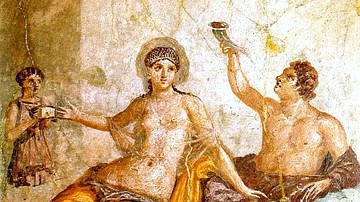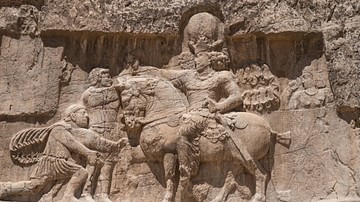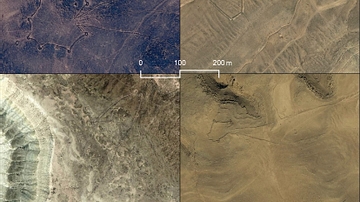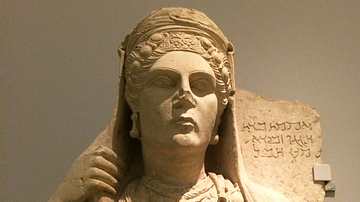Search
Did you mean: Pandora?
Search Results

Article
The Eastern Trade Network of Ancient Rome
The life of wealthy Romans was filled with exotic luxuries such as cinnamon, myrrh, pepper, or silk acquired through long-distance international trade. Goods from the Far East arrived in Rome through two corridors – the Red Sea and the Persian...

3D Image
Palmyra Castle
Photogrammetry of Palmyra Castle generated from HD video footage of a para-glider circling the castle. https://www.youtube.com/watch?v=w-zl2d5YUWI Fakhr-al-Din al-Ma’ani Castle or Palmyra Castle is a castle in the province of Homs...

3D Image
Palmyra Funerary Stele
Funerary stele, about 170-190 CE, Palmyra (Tadmor), yellow limestone. Musée d’Art et d’Histoire (Musée du Cinquantenaire, Brussels, Belgium). For more updates, please consider to follow me on Twitter at @GeoffreyMarchal. (https://twitter.com/GeoffreyMarchal...

Article
Enemies of Rome in the 3rd Century CE
It has been said that the greatest enemy of Rome was Rome itself, and this is certainly true of the period known as the Crisis of the Third Century (also known as the Imperial Crisis, 235-284 CE). During this time of almost 50 years, over...

3D Image
Roman Theatre at Palmyra
Crowdsourced photogrammetry of the Palmyra Roman Theatre. The Roman Theatre at Palmyra (Arabic: المسرح الروماني بتدمر) is a Roman theatre in ancient Palmyra in the Syrian Desert. The unfinished theatre dates back to the second-century...

3D Image
Temple Of Bel in Palmyra
The Temple of Bel (Arabic: معبد بل), was an ancient temple located in Palmyra, Syria. The temple, consecrated to the Mesopotamian god Bel, worshipped at Palmyra in triad with the lunar god Aglibol and the sun god Yarhibol, formed the centre...

3D Image
Arch of Triumph in Palmyra
The Arch of Triumph was a Roman ornamental archway in Palmyra, Syria. It was built in the 3rd century during the reign of emperor Septimius Severus. Its ruins later became one of the main attractions of Palmyra, until it was destroyed by...

Definition
Desert Kites
Desert kites are mega-constructions that consist of two long walls converging upon an enclosed space that has on its periphery small stone constructions called cells. Seen from the sky, their shape suggests that of a windborne kite; they...

Image
Funerary Bust of a Palmyrene Lady
This funerary bust of a Palmyrene lady dates from c. 175-200 CE and is made of limestone. It is originally from Palmyra, Syria. (Inscribed in Aramaic: ‘Aqmat, daughter of Hagagu, descendant of Zebida, descendant of Ma'an. Alas!") The inhabitants...

Video
The Warrior Queen Zenobia of the Palmyrene Empire
The warrior queen Zenobia of the Palmyrene Empire ruled her kingdom for three years until the Roman Emperor Aurelian stopped her in her tracks. The Palmyrene Empire was an empire that broke away from the Roman Empire during the instability...